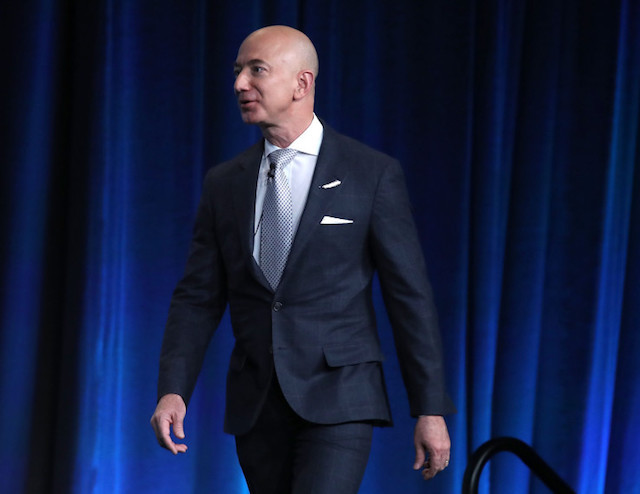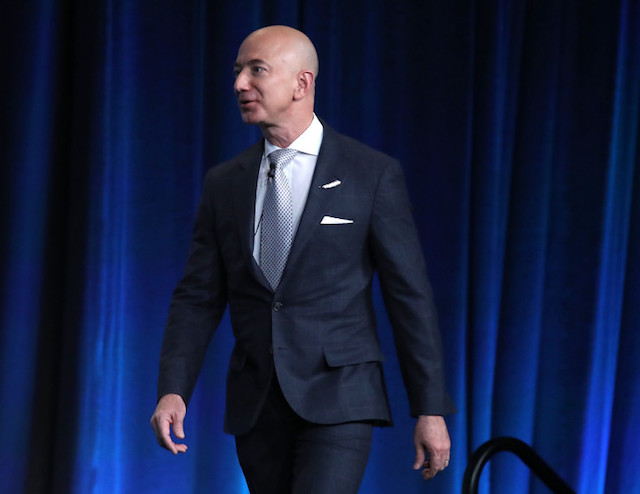

Amazon CEO Jeff Bezos and his wife, MacKenzie, are donating $33 million in the form of a scholarship grant to help 1,000 undocumented immigrant high school graduates with Deferred Action for Childhood Arrivals status attend college.
The Bezos grant comes through TheDream.US, a scholarship fund for Dreamers. The organization, which is less than four years old, says this is the largest grant it has ever received. In partnership with more than 70 low-cost colleges in 15 states, TheDream.US offers individual students $33,000 in scholarship aid over four years to help them cover the cost of tuition, fees and books.
“My dad came to the U.S. when he was 16 as part of Operation Pedro Pan,” Bezos said in a statement. “He landed in this country alone and unable to speak English. With a lot of grit and determination – and the help of some remarkable organizations in Delaware – my dad became an outstanding citizen, and he continues to give back to the country that he feels blessed him in so many ways. MacKenzie and I are honored to be able to help today’s Dreamers by funding these scholarships.”
Earlier this week, Bezos became the richest person of all time when his net worth reached $105.1 billion. At the time of publication, Bezos is worth $108 billion. Bezos’ donation also comes at a time when Congress and the White House are battling it out over the future of DACA.
Since 2012, 800,000 undocumented immigrants have received DACA status. But DACA status does not make them eligible for federal grants and loans, nor state aid in 44 states. That’s where TheDream.US comes in. As of now, 2,850 students are enrolled in college through this program. The Bezos grant will enable TheDream.US to help an additional 1,000 students.
While TheDream.US organization is not old enough to have graduation rates, it says its scholars are thriving academically, noting that 94 percent return to college after their first year, while the national average is just 72 percent.
“We expect a 75% graduation rate,” TheDream.US President Candy Marshall said in a statement. “This is extraordinary—extraordinary for any students; extraordinary for the colleges they attend; and extraordinary for students from low-income families in particular.”

